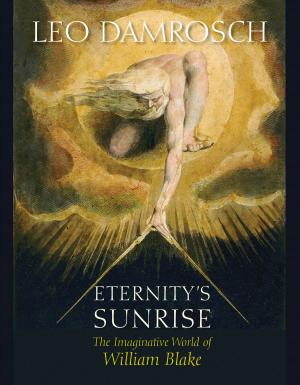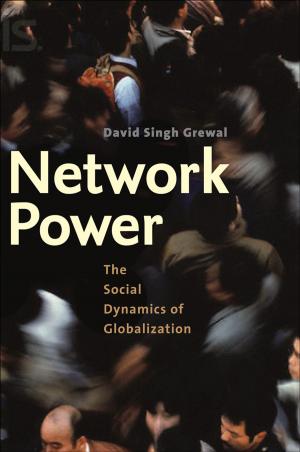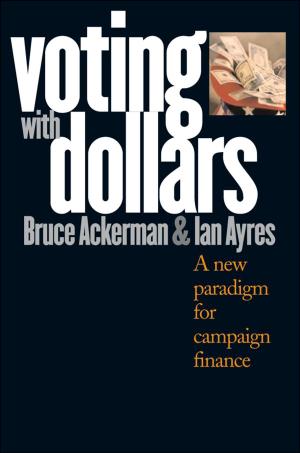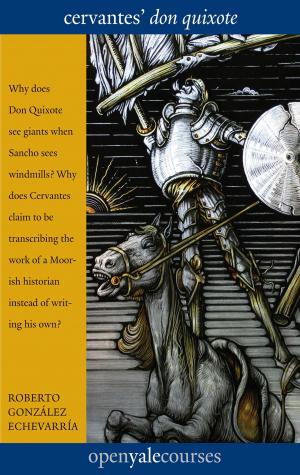| Author: | Professor Norman Cohn | ISBN: | 9780300177190 |
| Publisher: | Yale University Press | Publication: | August 11, 2001 |
| Imprint: | Yale University Press | Language: | English |
| Author: | Professor Norman Cohn |
| ISBN: | 9780300177190 |
| Publisher: | Yale University Press |
| Publication: | August 11, 2001 |
| Imprint: | Yale University Press |
| Language: | English |
All over the world people look forward to a perfect future, when the forces of good will be finally victorious over the forces of evil. Once this was a radically new way of imagining the destiny of the world and of mankind. How did it originate, and what kind of world-view preceded it? In this engrossing book, the author of the classic work The Pursuit of the Millennium takes us on a journey of exploration, through the world-views of ancient Egypt, Mesopotamia, and India, through the innovations of Iranian and Jewish prophets and sages, to the earliest Christian imaginings of heaven on earth.
Until around 1500 B.C., it was generally believed that once the world had been set in order by the gods, it was in essence immutable. However, it was always a troubled world. By means of flood and drought, famine and plague, defeat in war, and death itself, demonic forces threatened and impaired it. Various combat myths told how a divine warrior kept the forces of chaos at bay and enabled the world to survive. Sometime between 1500 and 1200 B.C., the Iranian prophet Zoroaster broke from that static yet anxious world-view, reinterpreting the Iranian version of the combat myth. For Zoroaster, the world was moving, through incessant conflict, toward a conflictless state-cosmos without chaos.” The time would come when, in a prodigious battle, the supreme god would utterly defeat the forces of chaos and their human allies and eliminate them forever, and so bring an absolutely good world into being. Cohn reveals how this vision of the future was taken over by certain Jewish groups, notably the Jesus sect, with incalculable consequences.
Deeply informed yet highly readable, this magisterial book illumines a major turning-point in the history of human consciousness. It will be mandatory reading for all who appreciated The Pursuit of the Millennium.
Until around 1500 B.C., it was generally believed that once the world had been set in order by the gods, it was in essence immutable. However, it was always a troubled world. By means of flood and drought, famine and plague, defeat in war, and death itself, demonic forces threatened and impaired it. Various combat myths told how a divine warrior kept the forces of chaos at bay and enabled the world to survive. Sometime between 1500 and 1200 B.C., the Iranian prophet Zoroaster broke from that static yet anxious world-view, reinterpreting the Iranian version of the combat myth. For Zoroaster, the world was moving, through incessant conflict, toward a conflictless state-cosmos without chaos.” The time would come when, in a prodigious battle, the supreme god would utterly defeat the forces of chaos and their human allies and eliminate them forever, and so bring an absolutely good world into being. Cohn reveals how this vision of the future was taken over by certain Jewish groups, notably the Jesus sect, with incalculable consequences.
Deeply informed yet highly readable, this magisterial book illumines a major turning-point in the history of human consciousness. It will be mandatory reading for all who appreciated The Pursuit of the Millennium.
All over the world people look forward to a perfect future, when the forces of good will be finally victorious over the forces of evil. Once this was a radically new way of imagining the destiny of the world and of mankind. How did it originate, and what kind of world-view preceded it? In this engrossing book, the author of the classic work The Pursuit of the Millennium takes us on a journey of exploration, through the world-views of ancient Egypt, Mesopotamia, and India, through the innovations of Iranian and Jewish prophets and sages, to the earliest Christian imaginings of heaven on earth.
Until around 1500 B.C., it was generally believed that once the world had been set in order by the gods, it was in essence immutable. However, it was always a troubled world. By means of flood and drought, famine and plague, defeat in war, and death itself, demonic forces threatened and impaired it. Various combat myths told how a divine warrior kept the forces of chaos at bay and enabled the world to survive. Sometime between 1500 and 1200 B.C., the Iranian prophet Zoroaster broke from that static yet anxious world-view, reinterpreting the Iranian version of the combat myth. For Zoroaster, the world was moving, through incessant conflict, toward a conflictless state-cosmos without chaos.” The time would come when, in a prodigious battle, the supreme god would utterly defeat the forces of chaos and their human allies and eliminate them forever, and so bring an absolutely good world into being. Cohn reveals how this vision of the future was taken over by certain Jewish groups, notably the Jesus sect, with incalculable consequences.
Deeply informed yet highly readable, this magisterial book illumines a major turning-point in the history of human consciousness. It will be mandatory reading for all who appreciated The Pursuit of the Millennium.
Until around 1500 B.C., it was generally believed that once the world had been set in order by the gods, it was in essence immutable. However, it was always a troubled world. By means of flood and drought, famine and plague, defeat in war, and death itself, demonic forces threatened and impaired it. Various combat myths told how a divine warrior kept the forces of chaos at bay and enabled the world to survive. Sometime between 1500 and 1200 B.C., the Iranian prophet Zoroaster broke from that static yet anxious world-view, reinterpreting the Iranian version of the combat myth. For Zoroaster, the world was moving, through incessant conflict, toward a conflictless state-cosmos without chaos.” The time would come when, in a prodigious battle, the supreme god would utterly defeat the forces of chaos and their human allies and eliminate them forever, and so bring an absolutely good world into being. Cohn reveals how this vision of the future was taken over by certain Jewish groups, notably the Jesus sect, with incalculable consequences.
Deeply informed yet highly readable, this magisterial book illumines a major turning-point in the history of human consciousness. It will be mandatory reading for all who appreciated The Pursuit of the Millennium.















